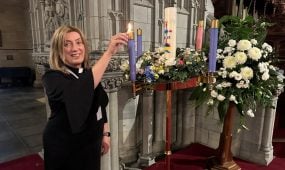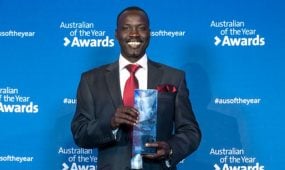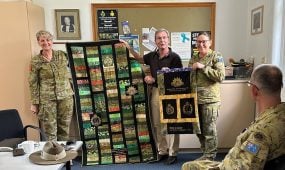Q&A with St Francis College Academic Dean and lecturer, artist and father, Dr Peter Kline
Spotlight Q&A
Meet Peter Kline and find out about his recent Charles Sturt University award, his thoughts on “Being Together: Embracing Joy”, his hobbies and interests, the best advice he has ever received and what person of faith inspires him the most and why
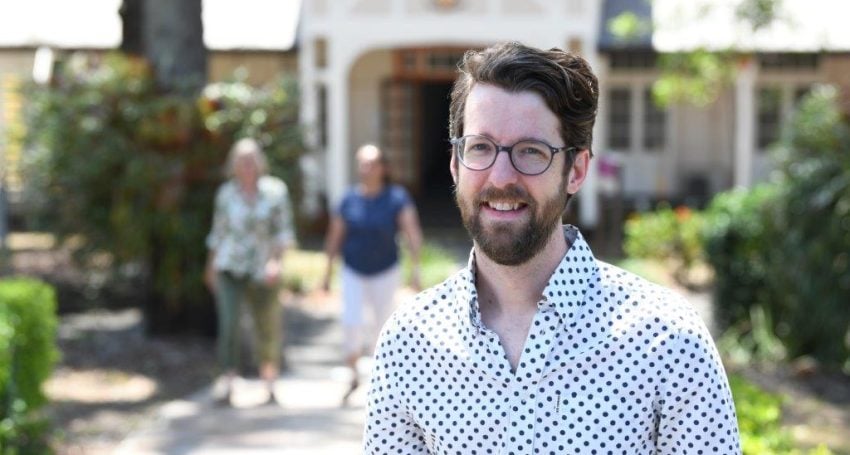
Where do you currently live and where do you worship?
I currently live on the St Francis College campus with my wife Janice, my son Leo, and my stepchildren Jesse and Penelope. I worship on campus in The Chapel of The Holy Spirit, as well as at St John’s Cathedral in the city.
How long have you been involved in the Anglican Church and in what roles?
I joined the Anglican Church in 2006 while living and studying in Chicago, Illinois. I am a proud lay person, and I have contributed to the congregational and theological life of the Anglican Church in Chicago, Houston and Brisbane.
What is your current ACSQ role and how does this role contribute to the Church’s mission?
I am the Academic Dean and lecturer in Systematic Theology at St Francis College. I teach lay people and ordinands that thinking hard about God is exciting, difficult, beautiful, dangerous and necessary.
What are the best aspects of working at St Francis College?
The chance to be in classrooms with students eager to do theology is what gets me into the office every day. St Francis has the best theological library in Queensland. Everyone in our Diocese ought to cherish, protect, celebrate, join and visit the Roscoe Library! The tall, lanky and majestic trees around the campus that host raucous gatherings of garrulous birds remind me as I work that good theology comes up from the Earth and is released without anxiety into the open sky.
Congratulations for being recently awarded ‘Charles Sturt University’s Most Productive Early Career Researcher’ – can you tell us about this award?
Thanks! It is an award that recognises both the quantity and quality of my research publications in theology over the first several years of working as an academic. Those publications include a book, journal articles, book chapters and some artwork.
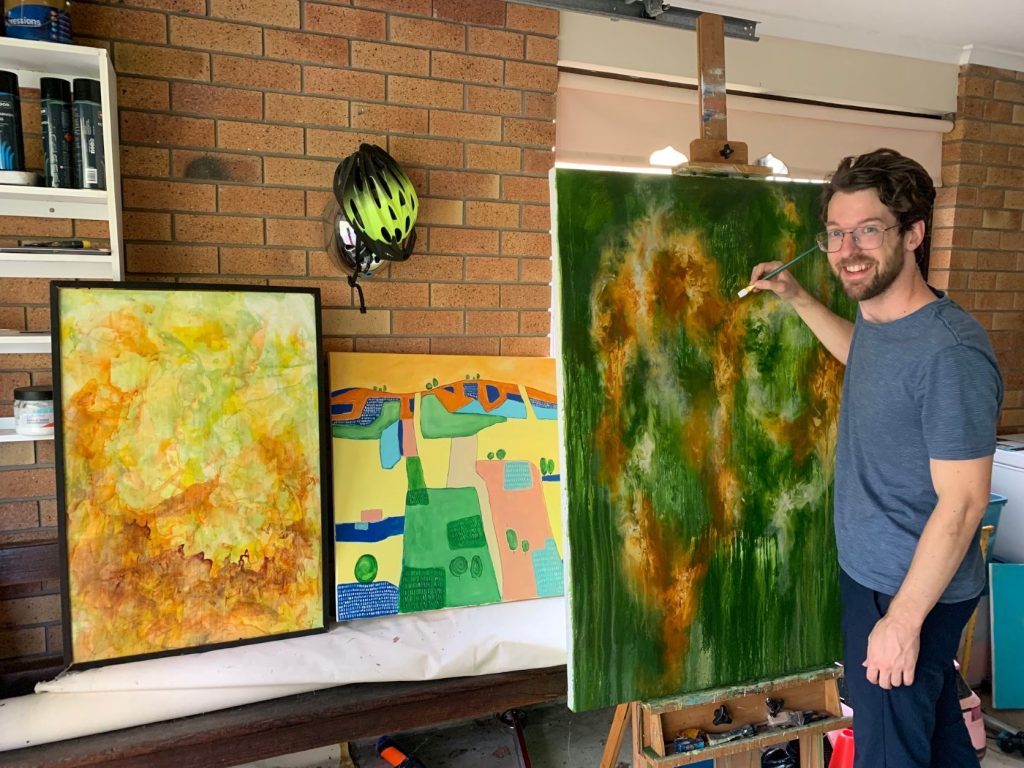
Peter Kline painting at his St Francis College home in March 2022
What projects and activities are you currently working on?
I have several writing projects underway, including a lecture on Kierkegaard and mysticism that I will deliver at Cambridge University this year, a book chapter on the theological significance of Christa (representations of Jesus as female), and a book project on theology and art. I am also an artist, so I am always dreaming up my next painting.
2022’s Diocesan theme is “Being Together: Embracing Joy”. What are some practical ways that we can celebrate the way differences help to make us whole and the importance of diversity in our unity?
I’ve been at a few diocesan events where we’ve practised “open spaces” and “talking circles”, and I think these can be very powerful tools for learning how to embrace difference. Anything that helps us practise listening at a deep level will bring us closer to a togetherness not structured by an agenda – a togetherness in which joy is possible.
Can you tell us a little about your personal faith journey?
For me, growing in faith has come to mean growing into the space of trust that my life might become – trusting myself, trusting others, allowing others to trust me, trusting that, whatever arrives against my plans, remaining open to life is the most important thing.
What is your favourite scripture and why?
My favourite book of the Bible is James. It de-emphasises believing the right things and emphasises instead that following Jesus is about caring for people and participating in God’s generosity that has nothing to do with money.
What person of faith inspires you the most and why?
Lawrence Loman, who is the central character of Sofie Laguna’s book Infinite Splendours. He is not an explicitly religious person of faith, but his faith in the wonder of existence, forged amidst horrendous trauma, shows a depth and bravery of existing that moves me deeply.
What does Lent mean to you?
Lent is a time to remember our limits – our mortality, our finitude, but also the limits of our best intentions. The good we intend with our lives is mixed up with personal and communal brokenness and failure. Lent is a time to remember that and to remember also that grace abounds.
What are the primary strengths of the Anglican Church and what is the best way to make the most of these for the benefit of our communities?
The Anglican Church at its best can open diverse spaces of sacramental togetherness. I don’t mean only the officially sanctioned sacraments that happen in church services, but a much wider and deeper readiness to take any part of creation, any bit of matter, as a sign and site of holy belonging. Rather than helping their communities to regard the Church as holy, churches should help them to receive each bit of life as gifted and graced.
What are your plans and goals for the next 12 months?
I am desperate to see family and friends in the United States where I am from. I have not seen them since 2019 due to COVID-19 related travel restrictions.
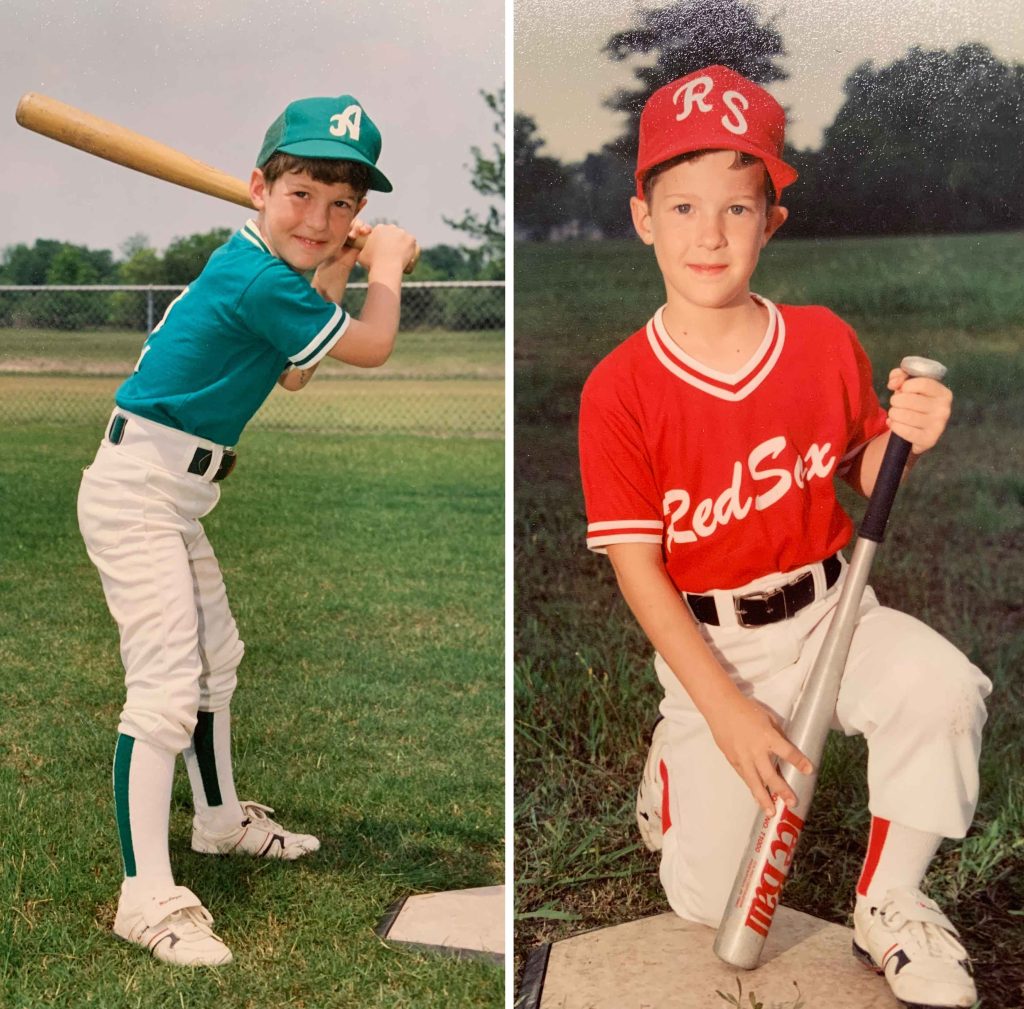
Peter Kline is from Houston in Texas, where he grew up playing baseball
What is the kindest gesture you have ever received or witnessed?
When I was just starting out as an artist learning to paint, an established artist I deeply respect sent me money for paint supplies and an encouragement to keep going.
What is the best piece of advice you have ever received and who gave you this advice?
During a particularly difficult period of my life in which I was facing a number of tough decisions, my dad wrote to me and said, “My greatest regrets are all associated with succumbing to platitudes and programming…The only outcome that would disappoint me is if you are defeated in pursuing the path you know is right.”
What day would you like to re-live and why?
The day my son Leo was born because it was the best day of my life.
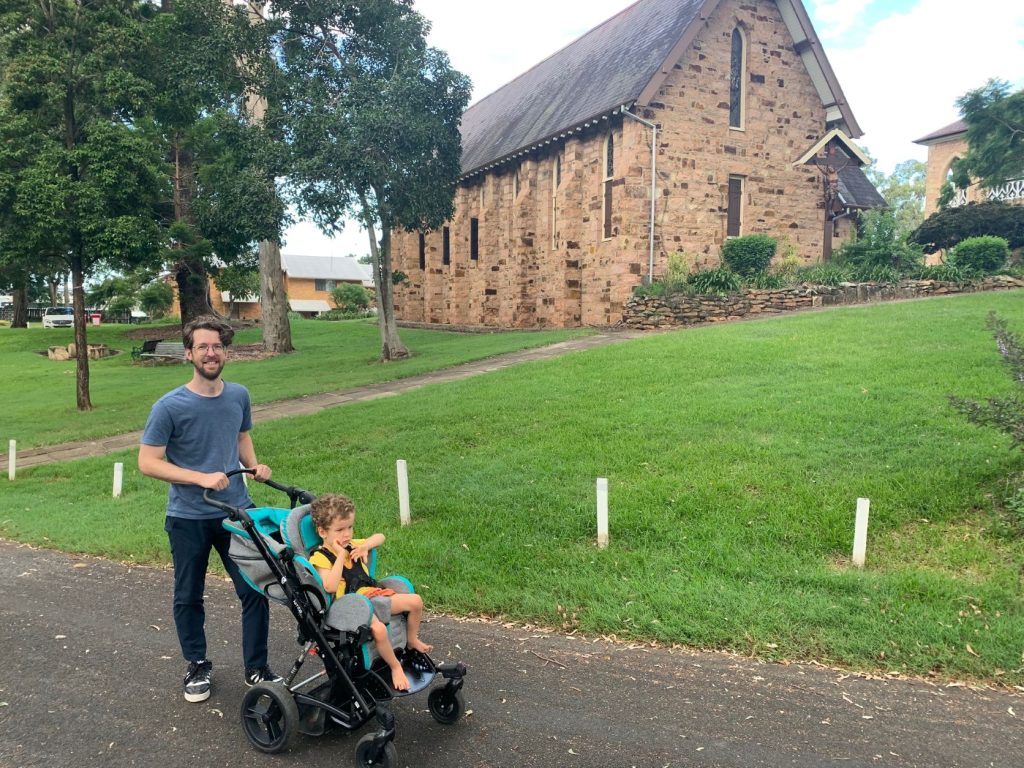
Peter Kline on his daily afternoon walk with son Leo around the St Francis College campus in March 2022
Where do you do your best thinking?
In the shower.
What’s your best childhood memory?
Sitting in the driveway on summer evenings after dinner eating popsicles.
What do you do in your free time to recharge and relax?
I paint, practise yoga, watch and play baseball, and go for walks.
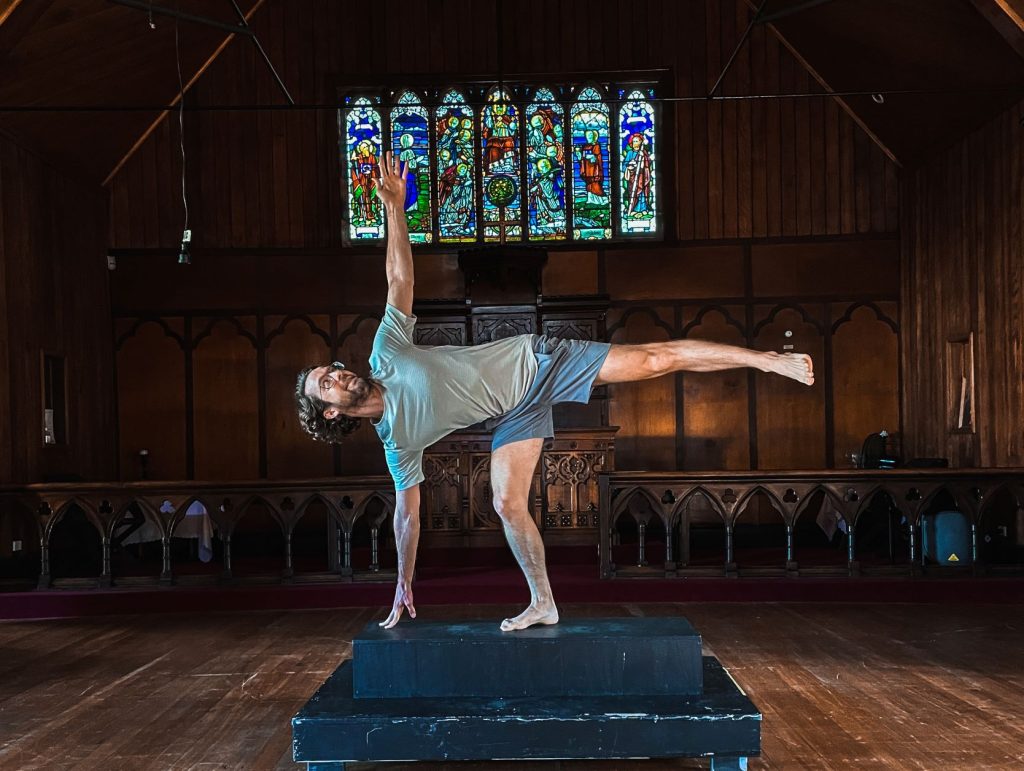
Peter Kline practising yoga at the Bodhi Yoga studio at Christ Church, Milton in February 2022
What book have you given away most as a gift and why?
My Bright Abyss: Meditation of a Modern Believer by Christian Wiman – because it is the most honest and beautiful portrayal of Christian spirituality I know of.
What’s your unanswerable question – the question you are always asking yourself?
“But what do I love when I love my God?” – Augustine of Hippo, Confessions.



